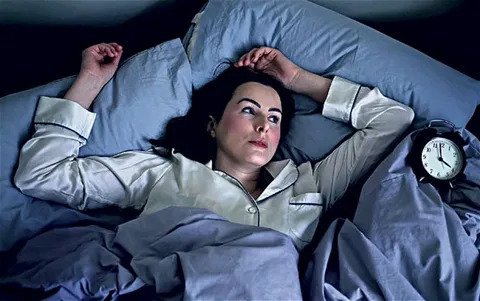
Anxiety and chronic fatigue frequently coexist, resulting in a complex interaction that can significantly lower someone’s quality of life. While anxiety is characterized by excessive worry, fear, and tension, chronic tiredness is a persistent state of physical and mental depletion that is not eased by rest. Effective management and treatment of these two disorders depend on an understanding of their relationship. This article examines the connection between anxiety and chronic fatigue, as well as the symptoms, potential causes, and thorough management techniques for each illness.
The Connection Between Anxiety and Chronic Fatigue
Anxiety and chronic fatigue are closely related, frequently creating a vicious cycle in which one illness makes the other worse.
Physiological Interactions:
Stress hormones like cortisol and adrenaline are released by the body in response to anxiety, which sets off the stress response. When these hormones are raised for extended periods of time, they not only wear the body out physically and psychologically but also prime it for a fight-or-flight reaction. Persistent fatigue may result from this stress reaction being activated repeatedly.
Anxiety is a common cause of sleep problems, such as trouble falling asleep, staying asleep, or having a good night’s sleep. Chronic fatigue can be brought on by inadequate or poor quality sleep. On the other hand, persistent exhaustion might exacerbate anxiety since the person may fear that they won’t be able to operate normally.
Mental and Emotional Strain Persistent anxiety can cause a person to experience a great deal of mental and emotional strain, which can result in burnout and chronic exhaustion. Anxiety can be psychologically taxing due to the continual concern and hypervigilance that accompany it, which makes it challenging for people to feel relaxed even after sleeping.
Behavioral Factors:
Avoidance and decreased physical activity are two habits that can result from anxiety and can exacerbate physical deconditioning and exhaustion. Furthermore, negative thought patterns can increase feelings of tiredness and hopelessness in people who suffer from anxiety.
Signs of Anxiety and Chronic Fatigue
Differentiating between anxiety and chronic tiredness might be difficult because of their same symptoms. Typical signs and symptoms include of:
Symptoms of Prolonged Fatigue
Chronic fatigue:
An ongoing feeling of weariness that does not go away with rest.
Unknown aches and pains in the muscles and joints are referred to as muscle and joint pain.
Headaches:
Headaches that are severe or frequent.
Concentration difficulties:
Issues with memory, focus, and cognitive abilities.
Sleep disruptions include:
Having trouble going asleep, remaining asleep, or waking up feeling rested.
Swollen lymph nodes and a sore throat are signs of a persistent infection.
Symptoms of Anxiety
Excessive worry is defined as uncontrollably persistent worry over a variety of life issues.
Being restless is the inability to unwind or feel at ease.
Sensitivity and irritation have increased.
Tension in the muscles:
Constant stiffness or pain in the muscles.
Panic attacks:
Abrupt, acute bouts of terror accompanied by bodily signs including perspiration, dizziness, and palpitations of the heart.
Avoiding events that make you anxious is known as avoidance behavior.
Reasons for Prolonged Idleness and Worry
Anxiety and chronic fatigue have several underlying causes, including biological, psychological, and environmental variables.
Factors Related to Biology
Anxiety and chronic fatigue can both be caused by imbalances in neurotransmitters, such as serotonin, dopamine, and norepinephrine.
Hormonal dysregulation:
Chronic weariness and anxiety may result from abnormalities in stress hormones like cortisol.
Immune System Dysfunction:
Both disorders have been related to immune system dysregulation and chronic inflammation.
Psychological Elements
Cognitive Patterns:
Worry and exhaustion can be made worse by negative thought patterns like overgeneralization and catastrophizing.
Trauma:
Anxiety and chronic fatigue can arise as a result of past trauma or continuing stress.
Environmental Elements
Lifestyle Decisions:
Unhealthy eating habits, inactivity, and drug misuse can all exacerbate anxiety and exhaustion.
Stressful Life Events:
Significant life transitions like losing a job, having a broken relationship, or having financial troubles can make people feel anxious and exhausted.
Handling Anxiety and Prolonged Fatigue
The physical and psychological components of chronic fatigue and anxiety must be addressed in a comprehensive manner for these diseases to be effectively managed. Here are a few all-encompassing tactics:
Healthcare Procedures
a. Drugs
Antidepressants and anti-anxiety medications can help control anxiety symptoms and, in turn, the symptoms of chronic fatigue. Prescriptions for serotonin-norepinephrine reuptake inhibitors (SNRIs) and selective serotonin reuptake inhibitors (SSRIs) are frequently written.
Stimulants:
While they are not a permanent cure, stimulants may occasionally be recommended to treat extreme exhaustion.
b. Aids for Sleep
Medication:
Over-the-counter or prescription sleep aids, such as melatonin, can enhance the quality of your sleep.
Cognitive behavioral therapy for insomnia (CBT-I): This treatment encourages sound sleeping practices and targets the root causes of sleep disorders.
Psychological Interventions
a. Cognitive-Behavioral Therapy (CBT):
CBT is a very successful treatment for persistent fatigue and anxiety. It assists people in recognizing and altering harmful thought patterns and actions that exacerbate their symptoms.
b. Mindfulness-Based Stress Reduction (MBSR) is a stress-reduction technique that integrates yoga and mindfulness meditation to enhance emotional regulation. It can lessen weariness by assisting with anxiety management and encouraging relaxation.
C. Counseling and Support Groups:
Getting emotional support and coping mechanisms for handling anxiety and chronic fatigue can be obtained by speaking with a therapist or by joining a support group.
Changes in Lifestyle
a. Frequent Exercise Physical activity has been shown to increase energy and lower anxiety. Exercises like yoga, swimming, and walking are very healthy.
b. Balanced Diet Consuming a diet high in fruits, vegetables, lean meats, and whole grains will help maintain good health and a high level of energy. Anxiety and exhaustion can also be controlled by avoiding sugar, alcohol, and caffeine.
C. Sleep hygiene can lessen weariness and enhance the quality of your sleep by establishing a regular sleep schedule, making your bedroom comfortable, and avoiding devices just before bed.
Techniques for Stress Management
a. Relaxation Methods:
Methods including progressive muscle relaxation, guided visualization, and deep breathing exercises can help manage stress and lessen fatigue and anxiety.
b. Time Management:
Having good time management and organizing skills can assist lower stress and avoid overwhelming sensations, which can worsen weariness and worry.
C. Interests & Hobbies
Taking part in enjoyable and calming hobbies and activities might help lower anxiety and weariness.
Alternative Medical Interventions
a. Acupuncture Research has indicated that acupuncture might lessen stress and increase vitality. To encourage healing and balance, it entails putting tiny needles into particular body locations.
b. Massage Therapy:
Massage therapy helps ease the feelings of weariness and worry by promoting relaxation and releasing tense muscles.
C. Herbal Remedies:
Certain herbs, such as chamomile, valerian root, and ashwagandha, can ease anxiety and encourage rest and sleep.
Getting Expert Assistance
Although self-help techniques have their place, it’s crucial to get medical attention if anxiety and chronic fatigue substantially interfere with day-to-day functioning. To rule out any underlying medical concerns and provide a customized treatment plan, a healthcare professional can do a comprehensive evaluation. Referrals to dietitians, mental health specialists, or other medical experts may fall under this category.
In summary
Anxiety and chronic fatigue are closely related disorders that can have a major negative effect on a person’s quality of life. For individuals impacted, it is essential to comprehend how these disorders relate to one another, identify the symptoms, and put into practice efficient management techniques. Through a combination of medical care, psychosocial counseling, dietary adjustments, and complementary therapies, people can effectively manage chronic fatigue and anxiety and enhance their general health. For patients dealing with these difficult disorders, early intervention and an all-encompassing approach to treatment can result in improved outcomes and a higher quality of life.
RELATED POSTS
View all


